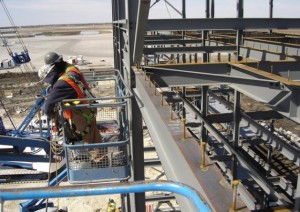Recognizing the Importance of Additional Training to Bridge the Skills Gap in the Oil and Gas Sector

Learning constantly plays a vital role in today’s rapidly changing job market. Encouraging employees to participate in upskilling programs and building a culture of learning within organizations helps to retain skilled workers and close the skills gap. Oil and Gas training institutes play a vital role in shaping up these skills for the candidates. Importance […]
Recognising the Key Distinctions Between Quality Control and Quality Assurance

Ensuring quality is crucial in the realm of product development and service delivery. In order to accomplish this, two key ideas are needed: Quality Control and Quality Assurance. Despite their similarity in pronunciation, the two terms refer to different strategies for preserving and enhancing quality throughout the development process. We will examine the main distinctions […]
Hybrid and Online Learning in Oil and Gas: Navigating the Future of Training

Oil and gas industry is changing regularly and we need to be aware of the same, staying ahead of the curve is not just a competitive advantage but a necessity. Continuous learning and skill enhancement are essential for professionals in this sector to adapt to evolving technologies, regulations, and industry trends. With the advent of […]
The Oil and Gas Business is Changing in 6 Ways Thanks to AI

Although it may be true that artificial intelligence has benefits for many industries, the oil and gas sector may stand to gain the most. Oil and gas production is among the most lucrative and risky industries. The use of artificial intelligence improves productivity, security, and business processes. Here are six ways AI is addressing different […]
What Distinguishes QA from QC in the Construction Industry?

Always producing outstanding work without cutting corners yields quality. The requirement for quality management is created by the presence of this quality throughout the project life cycle. Additionally, it is further divided into Quality Control and Quality Assurance in order to streamline the process of this quality management. For a construction project to provide a […]
Want to build a Quality Assurance Career?

Quality assurances and checks are as essential to a manufacturing process that dates back many centuries as the product’s nuts and bolts. Since the beginning of the industrial era, quality control has increasingly been divided into a separate department or group of people, whose primary duty it is to guarantee the consistency of the product […]